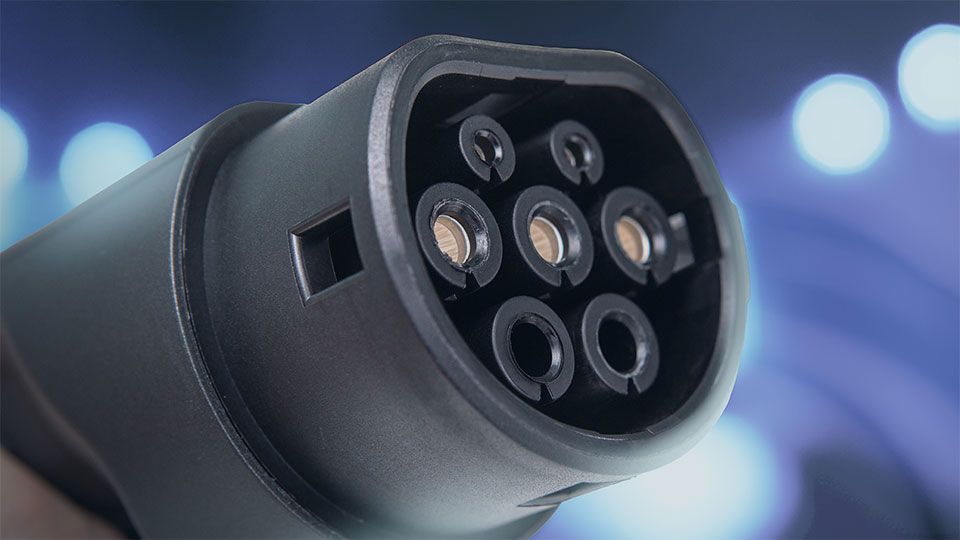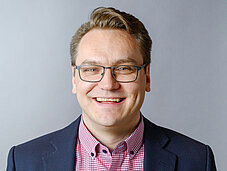
Multiphysics Simulation with Ansys Mechanical
Understanding and mastering strongly coupled physical phenomena

In this training, you will learn about the theory and practical application of coupled field simulation for the interaction of mechanics, temperature and electricity. This training is offered as a 2-day course.
Duration
2 days
Prerequisites
Basic knowledge of Ansys Mechanical
Software used
Ansys Mechanical
- Introduction to strong and weak coupling
- Field coupling in the blink of an eye with the Coupled-Field-Block
- Bidirectional and multidirectional coupling of electrics, thermals, mechanics, etc.
- Strengthening and damping interactions while considering nonlinearities
Description
Many simulations today are still carried out within a single physical subdomain. This is acceptable if a mutual influence with the other subdomains is negligible. However, questions concerning the consideration of these interactions can only be answered inadequately by analytical methods. Typical applications are connectors and micro-electro-mechanical systems (MEMS). Multiphysics FEM simulations can be used for the design of these applications. Ansys offers excellent tools for this purpose and calculates the resulting effects, taking nonlinear material dependencies into account.
An electric current produces losses and as a result causes heating, which leads to mechanical strain. This, in turn, can influence the course of the electric current. For connectors and MEMS, all these effects are relevant. Physical interactions are also relevant in many other applications. This training will illustrate the possibilities for simulative analysis of these systems.
This training is aimed at users and developers of connectors, MEMS and similar systems who want to understand and improve their process and shorten the development time for future processes.
Detailed agenda for this 2-day training
Day 1
01 Coupling with Coupled-Field Elements
- Strong and weak coupling in Ansys Mechanical
- Physical equivalents - fields, fluxes, potentials
- Multiphysics elements
- Workshop: Implementation of coupling in Ansys analysis systems
02 Brief Introduction to Ansys Workbench
- Operating concept
- Blocks and analysis types
- Nonlinear material properties
- Working with parameters
- Workshop: Energy balance of a busbar
03 Thermo-electric coupling
- Bidirectional coupling
- Definition of boundary conditions and loads
- Conduction of current and heat through nonlinear contacts
- Workshop: Current carrying capacity of a charging plug
- Outlook: Seebeck, Peltier and Thomson effect
04 Thermoelectric Mechanical Coupling
- Physical background
- Tri-directional coupling
- Definition of boundary conditions and loads
- Workshop: current carrying capacity of a charging plug considering mechanical effects
- Outlook: other temperature sources (plastic & viscoelastic heating, piezocalorics)
Day 2
05 Electromechanical Coupling (Electroelasticity)
- Mechanical force effect by electric fields
- Air-free method with transducer element and alternatives
- Consideration of scatter fields
- APDL evaluation of force and electrical capacity
- Workshop: MEMS Comb Drive
06 Thermo-piezoelectric Coupling
- Piezoelectrics for dynamic systems
- Consideration of temperature effects
- Evaluation of the quality factor
- Workshop Thermoelastic Damping: MEMS Resonator
07 Humidity Diffusion
- Balancing processes through concentration differences
- Concentration as degree of freedom and diffusion data as material description
- “Swelling” and additional consideration of mechanics
- Workshop: Chip Package
08 Electromagnetic Thermal Coupling and Outlook on Further Topics
- Strong and weak coupling as a function of time scales
- Electromagnetic elements in Ansys Mechanical
- Magnetic saturation as a function of temperature
- Workshop: Inductive heating
- Outlook Magnetostriction
Your Trainers

Dr.-Ing. Martin Rendek

Dr.-Ing. Jörg Neumeyer
Placement in the CADFEM Learning Pathway
Participant data
Additional information
Commentary
Whether eLearning, classroom courses, live online training or customized workshops - together we identify the best option for you.
Do you have questions on the training?
If you book through your university, you will receive a 50% discount on the stated fee on training courses and eLearning courses.
For more information on the validity and how booking with the code ACADEMIC50 works, please visit our page on training for academic users.
Straight after you sign up, an automatic confirmation of receipt will be sent to the email addresses you provided. Once you have successfully verified the data you provided, you will receive your personalized sign-up confirmation, containing further information on course fees, the billing address, etc., by email within two to three working days.
As soon as the minimum number of attendees has been reached, you will receive a final training confirmation containing further information. If you have booked an on-site training, we recommend that you wait until you have received this final confirmation before booking your travel and accommodation.
If the minimum number of attendees is not reached, we reserve the right to cancel the training seven days before it is due to start at the latest. We are happy to inform you on changing your booking to an alternative date. Please note that we accept no liability for hotel or travel bookings that attendees have already made.
Usually the training courses start at 9:00 am and end at 5:00 pm of the respective local time. The actual course times will be stated in the booking confirmation. Please note that, depending on the training host, there may be a possible time shift between your and the provider's local time. Therefore all local times are provided with the valid time shift to Greenwich Mean Time (GMT).




